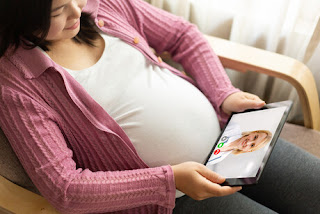How technology is changing maternity care

What is the time to be in health care. With the rise of personal care, home monitoring and telehealth, especially during the pandemic, we are witnessing a metamorphosis in the way doctors and nurses work together and care for patients.
This new practice is allowing the medical group to improve on current methods of care, by bringing more impact and comfort to the physician-influenced individual relationship. This, in turn, is creating options for medical expertise firms like ours to provide progressive alternatives to delivering that imaginative and foreseen.
Customers, for their half, have proven they are on board and rely on telehealth companies to stay afloat after the pandemic. Just as we have seen in the media, motels and taxis, the latter technology of lay practitioners, specialists and hospitals seeks to fulfill this expectation of sustainability. The slogan of this new effigy of care is: ‘The patient will see you now’. However, I would like to give an extension to it, such as ‘health in the palm of your hand’.
In fact some areas develop more easily than others. Take maternity care, for example.
The typical number of hospital or clinic visits for low-risk pregnancies is about 14, and high-risk pregnancies can exceed 40, creating a huge burden for each pregnant person and their caregivers. This problem is even more severe for people living in remote areas who are unable to do entry care alone. Telehealth has not been a viable answer to any of this through the pandemic due to the specialty of maternity care.
An important measure to find out the well-being of the baby in utero is its heart rate. Earlier, you could try it in a way, it was in a hospital with a knowledgeable cardiotocography (CGT) machine. The importance of fetal heart rate monitoring means that pregnant individuals are still required to take the chance and make face-to-face appointments, while the rest of the country is adopting more and more home monitoring and telehealth services.
Yet with our expertise that is changing. In August Ramsay Wellbeing Care Group began a paid pilot with HerMed to send prospective parents home with an intelligent, handheld system that tracks their baby’s heart rate with the same level of accuracy as efficient hospital machines. Can monitor, and then shares information seamlessly, in real time with your doctor or midwife.
The Herabeat system is specially designed for home customers to measure the value of their child’s life. In addition, our digital pregnant management platform allows for all kinds of additional essential medical measurements including your own blood tension, weight, temperament, exercise, sleep, glucose level and much more. Together the efficient cloud and dashboard contain an intelligent alert system that allows the physician or midwife to control which measurements and thresholds will set a computerized alert to suit the exact position and condition of the pregnant person. And it includes an in-depth telehealth functionality that allows the physician or midwife to speak well with the person they are caring for via encrypted chat, audio or video.
The pilot is being performed at the Jondalup Well Being Campus, arguably one of the largest hospitals in WA and a maternity care service supplier to an average of 3000 pregnant individuals annually, and a profitable medical research following of expertise. which is published in the US scientific journal, Obstetrics and. Gynecology, also known as the naive journal.
I hope that the pilot will be the final step in preparing the system and platform for wider roll-out across Jondalup Hospital and in the past. We recently initiated positive interim results from the same industrial pilot we are running with Obstetrix Medical Group, one of the suppliers of many of the largest medical companies in the US specializing in girl and child care. Interim results each present positive adherence limits and suggestions from expected individuals and clinicians.
The rise of telehealth across time has opened up options for specialist innovators to develop current methods of medical care. Many say it has facilitated a ‘quantum leap’, which has the potential to adopt a large specialization that was previously projected to grow with the next decade. In the case of maternity care, we are on the verge of witnessing a dramatic change that has the potential to deliver significant positive outcomes and value effectiveness for every pregnant person and their hospital.
